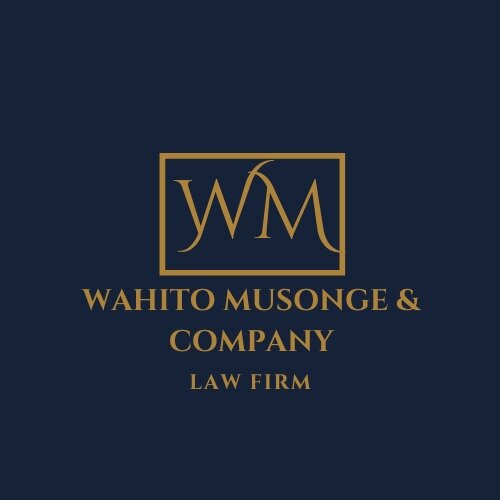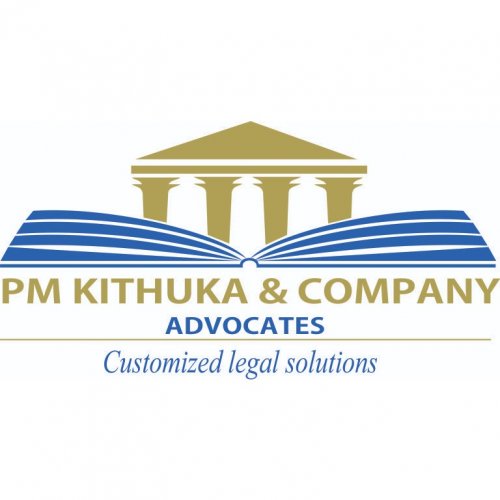Best Drugs & Medical Devices Lawyers in Kenya
Share your needs with us, get contacted by law firms.
Free. Takes 2 min.
Or refine your search by selecting a city:
List of the best lawyers in Kenya
About Drugs & Medical Devices Law in Kenya
The field of Drugs & Medical Devices in Kenya is governed by a combination of local regulations and international standards aimed at ensuring the safety, efficacy, and quality of pharmaceuticals and medical products. The Pharmacy and Poisons Board (PPB), along with the Ministry of Health, regulate the sector to guarantee public health and safety. Laws in this domain cover the approval, importation, marketing, and distribution of drugs and medical devices, focusing on preventing misuse and ensuring ethical practices in the healthcare industry.
Why You May Need a Lawyer
Legal advice is often sought in the Drugs & Medical Devices sector for several reasons. Manufacturers and distributors may require guidance on compliance with regulations for product approval and marketing. Legal help might be needed to navigate intellectual property issues concerning drug patents. Individuals affected by faulty medical devices or adverse drug reactions may need representation for compensation or dispute resolution. Moreover, healthcare providers might seek legal counsel on matters of ethical prescriptions or malpractice.
Local Laws Overview
In Kenya, the Pharmacy and Poisons Act and the Medical Devices Regulations are the main legislative frameworks governing drugs and medical devices. These laws outline the registration and approval procedures for pharmaceuticals and devices, define the roles of regulatory bodies like the PPB, and establish penalties for non-compliance or malpractice. The recent amendments have also emphasized the importance of pharmacovigilance and adverse event reporting systems, reflecting global trends in ensuring safety and quality in medical products.
Frequently Asked Questions
What is the role of the Pharmacy and Poisons Board in Kenya?
The Pharmacy and Poisons Board is the regulatory authority responsible for the regulation of pharmacies and the manufacturing and distribution of drugs and medical devices. They ensure compliance with safety standards and issue necessary approvals.
How are drugs approved for use in Kenya?
Drugs must undergo rigorous evaluation by the Pharmacy and Poisons Board, including assessments of safety, efficacy, and quality before they can be approved for registration and use in Kenya.
What should I do if I experience an adverse reaction to a medication?
Report the reaction to your healthcare provider and the Pharmacy and Poisons Board through their pharmacovigilance program. This helps in monitoring drug safety and preventing further incidents.
Are imported medical devices subject to regulation in Kenya?
Yes, all medical devices, whether locally manufactured or imported, must comply with local regulations and are subject to inspection and approval before they can be marketed in Kenya.
How can I verify if a pharmaceutical product is legitimate?
Check the product registration number with the Pharmacy and Poisons Board and ensure that it is listed in their approved database. Always buy from licensed pharmacies.
What actions can I take if harmed by a medical device?
Seek immediate medical attention, report the incident to the Pharmacy and Poisons Board, and consider contacting a lawyer to explore potential compensation claims.
Do I need a license to sell medical devices in Kenya?
Yes, you need a license from the Pharmacy and Poisons Board, and you must comply with their regulatory frameworks for distribution and sales.
What constitutes illegal promotion of a drug in Kenya?
Promotion that is false, misleading, or exaggerated, and any advertising of prescription-only medications to the general public is considered illegal.
How does Kenya ensure the quality of drugs and medical devices?
Through regulations that require rigorous testing, inspections, and compliance with international quality standards, alongside post-market surveillance activities.
Where can I report suspect counterfeit drugs?
Reports should be made to the Pharmacy and Poisons Board or the Anti-Counterfeit Agency for necessary action and investigation.
Additional Resources
For more information or assistance, you can contact the following organizations:
- The Pharmacy and Poisons Board
- The Ministry of Health
- The Anti-Counterfeit Agency
- The Kenya Pharmaceutical Association
Next Steps
If you require legal assistance, consider consulting with a lawyer who specializes in pharmaceutical and medical device law. They can provide tailored advice based on your situation. Research local law firms with experience in healthcare regulations and reach out for initial consultations to understand your legal standing and potential remedies. Additionally, ensure all relevant documentation and evidence are prepared for a more in-depth legal strategy discussion.
Lawzana helps you find the best lawyers and law firms in Kenya through a curated and pre-screened list of qualified legal professionals. Our platform offers rankings and detailed profiles of attorneys and law firms, allowing you to compare based on practice areas, including Drugs & Medical Devices, experience, and client feedback.
Each profile includes a description of the firm's areas of practice, client reviews, team members and partners, year of establishment, spoken languages, office locations, contact information, social media presence, and any published articles or resources. Most firms on our platform speak English and are experienced in both local and international legal matters.
Get a quote from top-rated law firms in Kenya — quickly, securely, and without unnecessary hassle.
Disclaimer:
The information provided on this page is for general informational purposes only and does not constitute legal advice. While we strive to ensure the accuracy and relevance of the content, legal information may change over time, and interpretations of the law can vary. You should always consult with a qualified legal professional for advice specific to your situation.
We disclaim all liability for actions taken or not taken based on the content of this page. If you believe any information is incorrect or outdated, please contact us, and we will review and update it where appropriate.
Browse drugs & medical devices law firms by city in Kenya
Refine your search by selecting a city.










